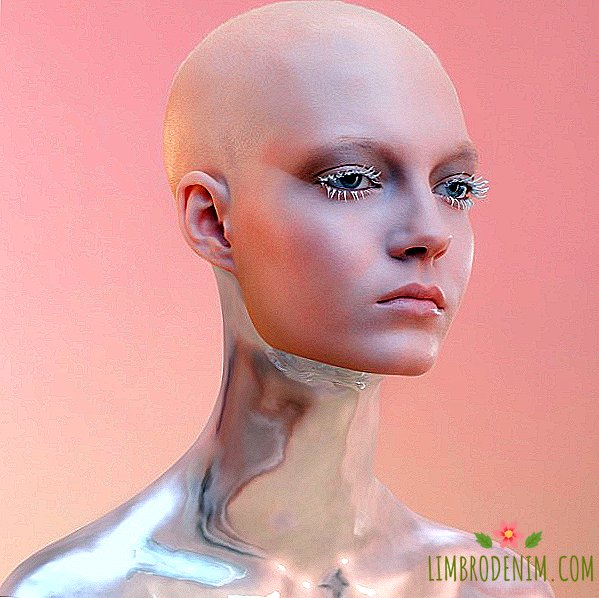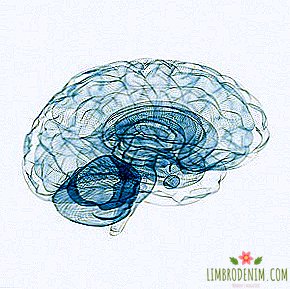Art activist Daria Serenko about favorite books
IN BACKGROUND "BOOK SHELF" we ask journalists, writers, scholars, curators, and other heroines about their literary preferences and publications, which occupy an important place in their bookcase. Today poetess, artist, creator of the action # quiet pickeet Daria Serenko shares her stories about favorite books.

 Recently, I tried to remember my teenage sensations from literature and realized that they were in many ways physical. You begin to simultaneously realize your body, construct yourself as a subject (in my case as a woman) - and the reading experience is very intertwined with the experience of subjectivation. Since many of us grow up “like girls” in childhood, and the teaching of literature at school often has a sexist coloring, at sixteen I was a well-read maiden who romanticized everything around and focused on traditional gender roles. Of course, this left an imprint on how I perceived literature and let books through me.
Recently, I tried to remember my teenage sensations from literature and realized that they were in many ways physical. You begin to simultaneously realize your body, construct yourself as a subject (in my case as a woman) - and the reading experience is very intertwined with the experience of subjectivation. Since many of us grow up “like girls” in childhood, and the teaching of literature at school often has a sexist coloring, at sixteen I was a well-read maiden who romanticized everything around and focused on traditional gender roles. Of course, this left an imprint on how I perceived literature and let books through me.
So, my first main author was a male writer, around whom I wanted to build a beautiful myth. It was Pasternak - not in the form of poems, but in the form of memoir prose, for example, the “Security Letters”. Since then, I don’t share my reading and writing experience: reading any literature turns into a written reflection - and sometimes it’s impossible to distinguish between where I read Pasternak and where I write the text in his footsteps. As a teenager, I did a lot of auto-writing and kept diaries around Silver Age literature, which I read a lot at that time.
In those years I was as if separated from modern literature by a giant wall: it seemed to me that all the poets were either dead or somewhere far, far away. And only admission to the Literary Institute drew my attention to contemporaries: at the interview there was a question who applicants read from living authors. With me, as with many girls and boys of my generation, Dmitry Vodennikov happened in the first years, which now I remember a little with irony. My reading experience turned into an epistolary genre: I sent a letter to the poet, he answered me and even set himself the status of "VKontakte" with a line from my letter. After him, Faina Grimberg, Maria Stepanova, Elena Fanaylova, Sergey Zavyalov, Arkady Dragomoshchenko and other authors who were important to me were already there.
Sometimes I share the ideological and artistic components of the texts: thick patriarchally oriented novels can calmly read with feminist optics and continue to enjoy the structure, language, design. This was facilitated by the reading of literary criticism, poststructuralists and literary theory. It is worth mentioning another important turning point in my reading practice: after years of myopia, I made a laser vision correction and began to see one hundred percent. This greatly influenced my interaction with the book as a subject: now I can physically distance myself from it, or, for example, it is enough for me to look at the page with a glance to understand what I am reading. Now I perceive the text not fragmentary, but entirely.
Seeing a feminist, I became literally one year old: after restoring my eyesight, I read basic books on the theory of feminism, finally saw my body completely reflected in the mirror, left the church and began to understand what system I was built into. One of the first texts that I interpreted as a feminist was the Gospel: I was a church-minded person and the Gospel as a reference book was always there. The feminist base was superimposed on personal experience: what seemed to be happening to me alone was embedded in a global picture, where something was wrong with you, and the system itself worked according to certain rules. Another important transitional book for me at the same time was a collection of articles entitled Homosexuality and Christianity in the 21st Century, which resolved some of my contradictions: I was an Orthodox Christian at that time, a feminist, and my best friend was gay. In this book, I drew a lot of future arguments in disputes with Orthodox Christians, many of whom take an uncompromising position, and at the same time, for example, do not know the texts to which they refer.
For me, the silent pickee community is a continuation of my poetic practice: I do visual poetry and I am interested in the performative nature of poetry and how the text turns into a live action. The quiet picket is a horizontal initiative that lives its own life and grows in unexpected environments. For me, he removed the opposition between those who broadcast the message and those who receive it, it removes the institution of authorship. The ideas of the participants and the participants complement each other, the opposition between online activism and offline is removed. It used to be that a real activist is one who puts his body at social risk, but online activism is no less important in our community. And sometimes no less dangerous. This change of roles has become for me the most valuable part of the story of the picketet.
The main philosopher who taught me to work with text and switch between author and recipient modes was, of course, Roland Barth - and it was thanks to him that I probably became involved in activism. He, so to say, once hurt me with "Fragments of a love speech," which I took naively through the personal experience of pronouncing love - Bart then disarmed me with his comprehensibility and recognition. I was always ashamed to pronounce love and its affects. I read Bart at the same time as Proust, who has a lot of painful reflections about love and whose prose I endured as a great experience. Previously, every book I read, snatching me from the surrounding space, became an event. But now the process of reading is dissolved in the mode of my day and work: reading an incredible amount of texts has become a habitual way of life - and sometimes I can’t even track the books I read and the authors I have learned.

Valerie Bryson
"Political Theory of Feminism"
The Bryson book was one of the first and important for me when I got acquainted with the theory of feminism. It is completely basic and does not cover many aspects, but it systematizes the main directions of feminism and the contradictions within it. For a person who is just beginning to learn about feminism, it is fundamental because it gives a fundamentally new coordinate system. After it, it becomes clear why it is important to talk about feminism now, how to perceive feminism in the general history of injustice and look at it from the perspective of the struggle.
My friend shared this book with me in a dormitory in his time - a very important person for me who helped me to overcome homophobia. Since then, she travels with me, and I am very afraid of losing her. I often argue with Bryson, but this is the book to which you can always send all people interested in Tikhimpiket, but who know nothing about feminism - for me it’s like a door through which I can invite those who want to learn about feminism.
Leonid Schwab
"Believe in the botany"
Before meeting this book, I had a very limited understanding of poetry. Schwab completely changed the established visual style within me. His poems live on the ruins of the urban world, where de-objective figures are swimming on the verge of anti-utopia. Schwab writes in such a way that the author is absent in his poems as a visible totalitarian unit: inside the verses there is no character speaking from the first person in a romantic pose. I saw Shvaba once, he came from Israel to speak in Moscow - and I was struck by the fact that there was almost no stylistic difference in his public poetic speech and our short talk.
Osip Mandelstam
Poems
Mandelstam is the author whom I cannot break into books. I read all of Mandelstam, constantly returning to him, I take his poems on every trip to the sea. Each person probably has a protected inner zone of the tragic, and Mandelstam inside me launched it - with his biography and his creativity. She always itches in me and accompanies every day of my life - I can not even track his appearance in my head, and it sounds almost every day. This is my very same author, whom you can take with you to an uninhabited island.
Gaston Bachelard
"Poetics of space"
The case when the book is not politically close to me, but is very interesting from an artistic point of view. Bashlyar as an art historian and phenomenologist examines phenomena in their pure form, for example, the element or phenomenon of a house, reduces concepts for more detailed analysis: for example, it explores fire in Western European literature or water. The most valuable for me in Bashlyar are the new and quite unusual mechanisms for analyzing texts.
Maria Rachmaninova
"Woman as a body"
This is a relatively recent collection of articles in which feminist and gender researcher Maria Rakhmaninova covers the main aspects of a woman’s life and, consistently with arguments and historical facts, examines them in a contemporary context. This is another mandatory book from a set of beginning feminists, which I was lucky to read already quite informed on the topic. It is a compact and interestingly written book that reveals gender issues through a left-wing agenda: for example, Rachmaninova analyzes in detail a woman and her body within capitalist relations.
Patti Smith
"Just kids"
This book was given to me by my best friend to read: she has a tattoo with poems Patti Smith on her arm since teenage times. I was taken out of the western subcultural context for a very long time: when everyone led a stormy life, I had a churching, fasting and silence. I have not studied either the important texts of the 60s and 70s, nor the punks - and have made up subcultures for the past two years. It was one of the last books I read in one gulp, coinciding with the beginning of my activist practice.
At the beginning of the #capicketa, I felt an openness that I had never had before, and the disappearance of the fear of risk, travel, the desire to drastically change my life. Patti Smith is very much about it: she joins in life - and something happens. Smith describes her life as a miracle: either she gives birth to a child, then she becomes acquainted with the love of all life in the park, then she goes to another city. This coincided with how I began to sense life events and embed them in my inner memoir narrative.
Alexander Skidan
"The amount of poetics"
Skidan is a poet, philologist and critic who is very important for the poetic environment. This book also influenced how I came to feminism, because Skidan had an article “Stronger than Uranus” about Russian-language female poetry of the last twenty years. He observes how women write about themselves, describe their experience, how the performability of gender in modern poetry looks like - and my current views are shaped largely because of it.
George Ivanov
"Decay of the atom"
The book of Ivanov and Vaginov's The Goat Song are my alternative Silver Age, the antonym of a diluted Silver Age at school. The book about death, perversion, historical decay does not appear in the school curriculum - this is more familiar to read in the publishing house Kolonna. Both Ivanov and Vaginov are similar fragments for me about what happens to a person at the break of epochs: these books have a lot of decadence, loss, isolation from the state and history. Hermetic prose of Khodasevich, Ivanov, and Vaginov is not the first series of Russian works of the beginning of the 20th century for an ordinary reader, but we in the Literary Institute devoted a lot of time to them and literally read them out.
Andrey Zorin
"Feeding the double-headed eagle"
The book was advised to me by the teacher Ilya Kukulin: with its help I filled in some gaps in the knowledge of national history. This book is about the interpenetration of literature and politics, and more likely even about how ideological projects of one time or another anticipated literature or left their mark on poetic texts. Zorin tells how ideologies were constructed: this is a very useful study for anyone who wants to understand the modern turn of state policy. Often, without realizing it, the current government works on ideologies through the ruins of the past - imperial or Soviet - and Zorin explains this new reality and the new ideological Frankenstein, assembled from different pieces of our collective history.
Jonathan Safran Foer
"Full Illumination", "Terribly loud & prohibitively close", "Meat. Eating Animals"
Fourah I read everything at once, several books in a row — I sat in a cafe and did not tear myself away from it for days. I am rather tight with prose, and after Proust was completed, I was given nothing but stories. The big novels frustrated me, but Foer broke the silence of the big text and helped to cope with the unusual form - after it there is a sharp greed for reading new books. It works perfectly with the reader’s and co-author’s borders and the general passivity / activity of the audience, plays with the modes and rhythm of reading. In a sense, reading Foer is a wonderful gymnastics for the inquisitive reader.




